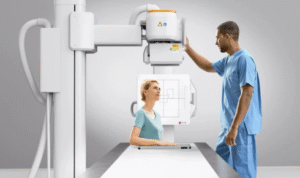Introduction
Recent developments in immunology, radiopharmaceuticals, and cardiac monitoring are offering new insights that will shape the next generation of clinical research.
According to reports from Clinical Trial Vanguard, several key studies have delivered important findings, revealing both challenges and breakthroughs across therapeutic areas.
Below is an overview of three significant updates.
1. Anaptys Reports Phase 2 Failure for Ulcerative Colitis Therapy Rosnilimab
Anaptys has announced that its investigational therapy Rosnilimab did not meet primary endpoints in its Phase 2 clinical trial for ulcerative colitis.
The therapy targets immune-mediated pathways aimed at reducing inflammation in the gut. Despite strong preclinical rationale and earlier study signals, the Phase 2 results did not support meaningful clinical benefit in patients with moderate to severe ulcerative colitis.
Although disappointing, this outcome provides valuable data for refining future research strategies in autoimmune gastrointestinal disorders and highlights the inherent complexity of developing novel immunotherapies.
2. New Human Imaging Data Highlights DLL3 Radiotherapy Potential With MP0712
A new radiopharmaceutical innovation has shown promising clinical images for DLL3-targeted radiotherapy.
MP0712, designed to target DLL3-expressing tumors, has demonstrated strong tumor uptake in the first human imaging results.
DLL3 is frequently overexpressed in aggressive cancers such as small cell lung cancer, making it an attractive target for precision radiotherapy. The human imaging data indicates that MP0712 may enable more effective and selective delivery of radiation to tumors while sparing healthy tissues.
These early findings support continued clinical development of DLL3-directed radiopharmaceuticals and their potential to improve outcomes in hard-to-treat cancers.
3. iRhythm Unveils Significant New Heart Monitoring Data
In cardiovascular research, iRhythm has revealed remarkable new findings from its latest study on advanced cardiac monitoring technology.
The results highlight improvements in early arrhythmia detection and diagnostic accuracy, demonstrating how wearable cardiac monitoring tools can support faster and more precise detection of heart rhythm disorders.
These insights reinforce the growing role of digital health technologies in cardiology and the potential for continuous monitoring tools to enhance patient care, reduce diagnostic delays, and improve long-term outcomes.
Conclusion
From challenges in autoimmune drug development to advances in radiopharmaceutical targeting and significant progress in cardiac monitoring, these updates reflect the dynamic evolution of clinical research.









